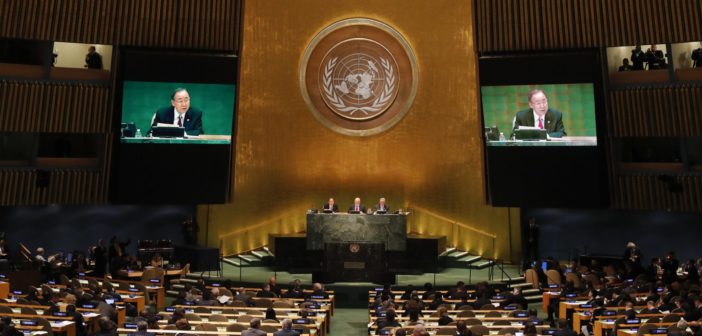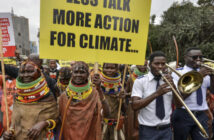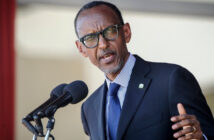The 71st United Nations General Assembly kicked off in New York, world leaders are tackling what is arguably the most pressing international emergency of the moment: refugees and migrants. With an unprecedented 65.3 million refugees representing 0.9% of the world’s population, and many more economic migrants trying to reach wealthier countries.
The UN members signed the New York declaration yesterday. The non-binding resolution, signed by 193 member states, recognizes and protects the rights of refugees and migrants, agrees to help them become productive members of the countries they are taken in by, and provide for their safety.
The declaration also commits to ending the practice of detaining unaccompanied minors while their refugee statuses are being verified, and to support countries that take in a larger number of refugees. The International Organization for Migration, the largest international organization dealing with migration since 1951, is also become part of the UN.
The declaration was hailed by the UN as “powerful,” a “historic opportunity,” and “a political commitment of unprecedented force.”Celebrities endorsed it. Hashtags were launched.
But outside the UN building, for the millions displaced, little is likely to change as a result of this agreement. The lofty values behind the agreement may not necessarily translate into real policies. And while the heads of state agreed on paper to work hard to protect refugees, many of the speeches and comments seemed more concerned with how to stop them.
British Prime Minister Theresa May attacked economic migrants and called for stronger borders, and said that refugees should have to apply for asylum in the first safe country they reach, which is seldom the UK.
Donald Tusk, president of the European Council, was more moderate in his speech, but stressed the need to “restore order” at Europe’s borders, ushering in “a new pragmatic approach and a shift towards a global system of more orderly movement, where the responsibility is shared and where no one will bear the burden alone.” Tusk also pledged to provide support to countries that are hosting large numbers of refugees, such as Jordan, Lebanon, Turkey, and countries in the Western Balkans—a signal that the EU’s priority is to keep migrants and refugees out of Europe.
Among Asian countries, China pledged a further $100 million for refugee aid on top of a $1 billion fund announced last year in support of the UN’s work. Japan pledged $2.8 billion over three years. Both did not offer to take in any refugees. Australia—which has been criticized for its treatment of asylum-seekers on the island of Nauru—defended its tough immigration policies, claiming they give citizens more confidence in accepting migrants and refugees.
Canada stood out, as Prime Minister Justin Trudeau said the country will continue its effort to resettle refugees. Barack Obama is expected today to pledge to let in 110,000 refugees by 2017, when he will host a leaders’ summit on refugees.
But those numbers are not large enough to tackle the crisis. As Nobel laureate Malala Yousafzai noted, “the declaration does not include any new, substantive commitments for refugees”—and if the first day of its existence is anything to go by, not only will it not change the facts, it will fail to change attitudes, too.




